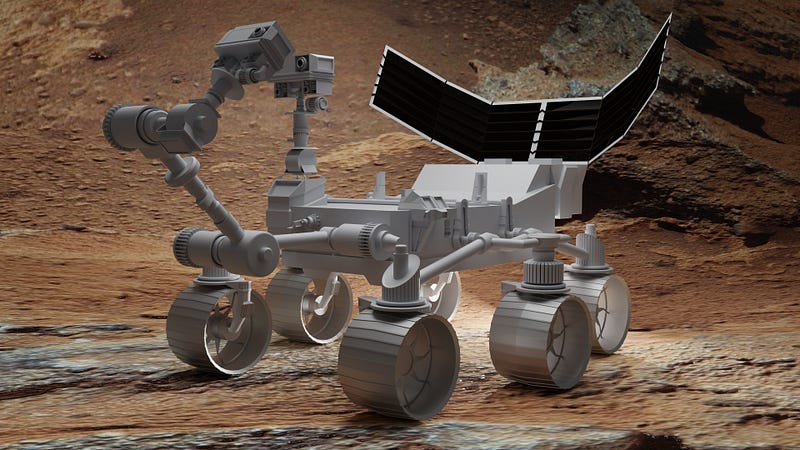Discovering Sound on Mars: Insights from Perseverance Rover
Written on
Chapter 1: Introduction to Martian Sound
Have you ever wondered what sounds can be found on Mars? NASA's Perseverance rover is on a groundbreaking mission to explore the Martian landscape and, equipped with a microphone, it has been recording various sounds that provide us with a deeper understanding of the Red Planet.
Did you know that sound behaves differently on Mars compared to Earth?
Section 1.1: Key Differences in Sound
NASA has identified three significant distinctions between sound on Mars and sound on Earth. Let’s delve into these differences:
Subsection 1.1.1: The Speed of Sound
Mars has a much colder climate, averaging around -81 degrees Fahrenheit. This frigid temperature causes sound to travel at a slower pace compared to Earth. On our planet, sound moves at roughly 760 mph, whereas on Mars, it travels at about 540 mph. Just like us, sound slows down in the cold!

Subsection 1.1.2: Sound Volume
Sounds are noticeably quieter on Mars due to its thin atmosphere, which is approximately 100 times less dense than that of Earth. This reduced density means objects weigh about one-third of their Earth weight. Maybe it's time to rethink the scale for Martian measurements!
Subsection 1.1.3: Sound Quality
Unfortunately, Mars isn’t the ideal place for high-fidelity audio. The Martian atmosphere is composed of about 96% carbon dioxide, while Earth has only 0.04%. This difference can lead to high-pitched sounds being lost in the vastness of space.
Chapter 2: What Sounds Did Perseverance Capture?
Curious about what Perseverance has recorded? As the rover navigates the Martian terrain, it captures various sounds, including:
- Laser impacts on Martian rocks
- The Ingenuity helicopter
- Its own movements
- Interplanetary noises
- The wind sweeping across the Martian surface
You can listen to the actual sounds recorded by Perseverance in this video.
Section 2.1: The Search for Life on Mars
Is there, or was there, life on Mars? Research indicates that ancient water droplets may have existed on the surface, suggesting that conditions could have supported life. However, definitive proof of life on Mars remains elusive, and the quest to understand this mysterious planet continues.
Section 2.2: Experience Your Voice on Mars
What do you think? Do you notice any differences? Share your thoughts in the comments!
If you found the exploration of sound on Mars fascinating, you might also enjoy this article:
Is Bionic Reading the New Way to Read and Write?
I have no affiliation with Bionic Reading; I simply enjoy sharing interesting content.